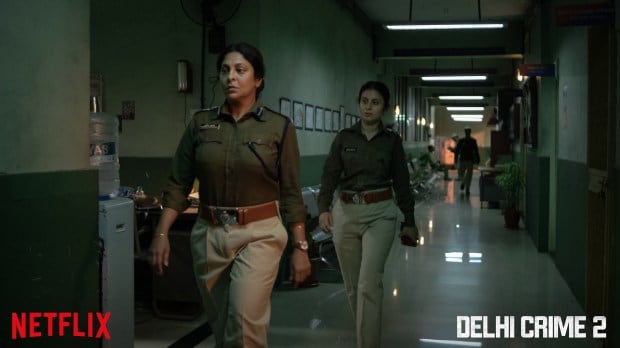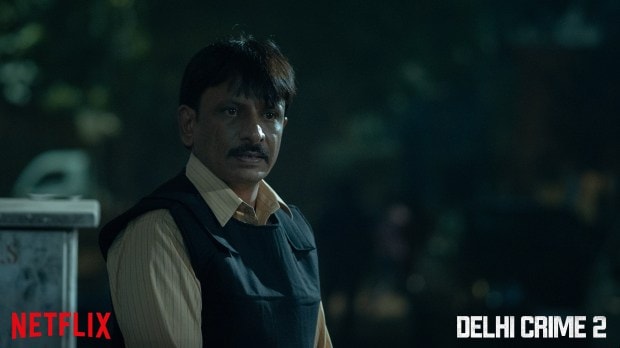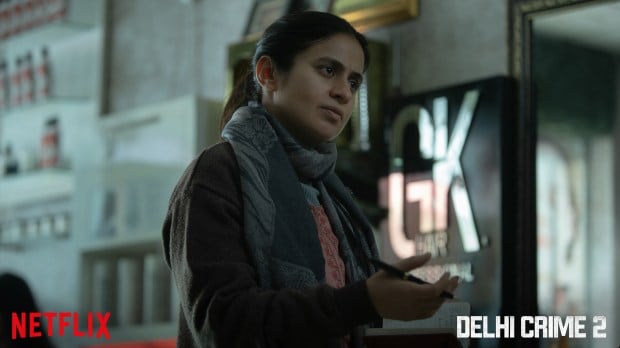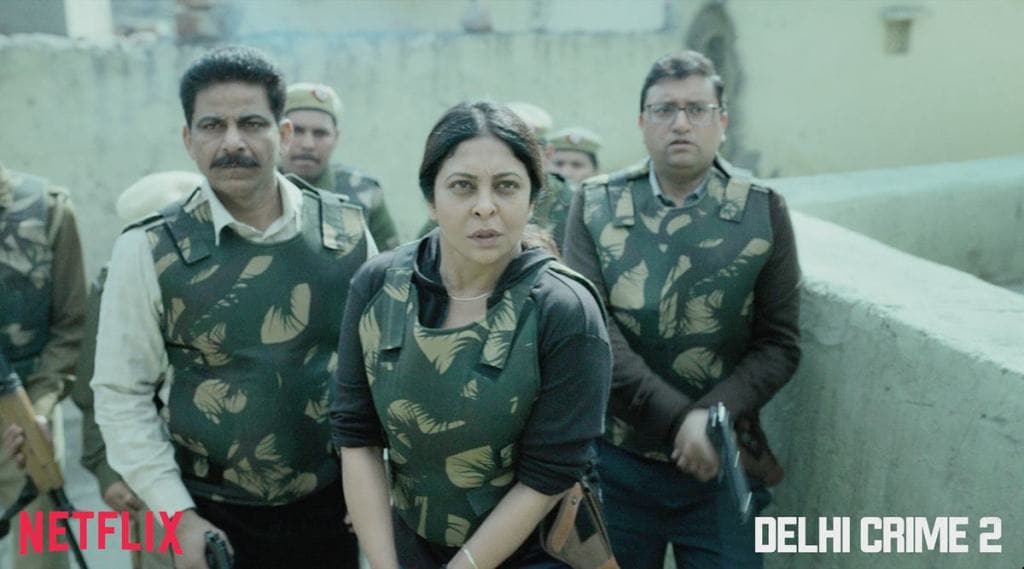You may call it a review or an appreciation article but Netflix’s award-winning drama Delhi Crime season 2 has left me with so many questions that we often don’t discuss. Starring Shefali Shah (DCP Vartika Chaturvedi), Rasika Dugal (IPS Neeti Singh), Rajesh Tailang (inspector Bhupinder Singh), Anurag Arora (sub-inspector Jairaj Singh), Gopal Datt (sub-inspector Sudhir Kumar), Sidharth Bhardwaj (SHO Subhash Gupta), Adil Hussain (Commissioner Kumar Vijay), and Tillotama Shome (Karishma), among others, Delhi Crime once again bases itself on a real-life case. This one begins with a quadruple murder in a South Delhi bungalow that seems to have been committed by a criminal syndicate (Kacha-Baniyan gang) inactive in the city for the previous 20 years, but this is more than a simple whodunit — along with the twists and turns around the case, there’s plenty of consideration for cultural and political context, emotional and psychological strife, and the careful battle between what’s right and what’s allowed.
Also read: Rasika Dugal on what makes Delhi Crime 2 special: Series reflects society and its ill practices while investigating cases
You must be wondering why I mentioned the show’s entire cast, contrary to the basic style where only the lead characters are mentioned. It is because each character is equally important and reflects a section of our society.

Vartika Chaturvedi is back on a new case along with a team mostly returning from Season 1. She is investigating the brutal murders of elderly people by the long-dormant Kachcha Baniyan gang. However, as the case progresses and suspected tribal people—the Kachcha Baniyan gang, primarily comprised of Denotified Tribes, or DNTs—are interviewed and cross-questioned, it becomes clear that there is a copycat at work here.
Here, the makers have reflected on how people from lower sections of society are deprived of justice and their basic privileges. The DNTs are beaten up and taken into custody without allowing them their legal rights. The class divide is questioned in Delhi Crime’s season 2.
Also read: Liger, Chintaa Mani , Holy Cow, Criminal Justice: Films and shows releasing this weekend
Directed by Tanuj Chopra and written by Mayank Tewari, Shubhra Swarup, and Ensia Mirza. It beautifully depicts the relationships—between Neeti and her husband; Vartika and her daughter; Bhupinder and his daughter, and Karishma’s relationship with her husband, son, and crime partners.

On one hand, where Neeti is struggling to prove that women have all the right to have a successful career, maybe better than that of their husband, Vartika has no such issues. She belongs to an upper section of society where her husband is quite supportive of her career choices and encourages her. In the entire series, Neeti tries to make her husband understand her worth until the end, when she decides to prioritise herself. Vartika shares a friendly relationship with her daughter Chandu, who is studying abroad, whereas Bhupinder struggles to talk to his child. Karishma, the culprit, uses her three partners only for money and then kills Babloo and Thermal when they refuse to be her allies. She is married and has a child, but she takes no time to leave them for her dreams.

People have been debating that the series has depicted the Delhi police in a better light, even when things are not the same on the surface. But we should consider the ultimate message of Delhi Crime to answer it: You cannot stereotype people if a few are corrupt.
Delhi Crime has successfully managed to highlight the issues in our society. Even the relationships explain how things are not the same for everyone.
Delhi Crime season 2 is streaming on Netflix.


